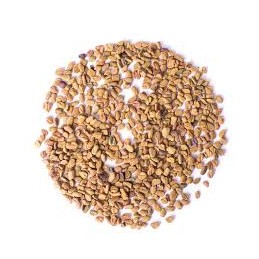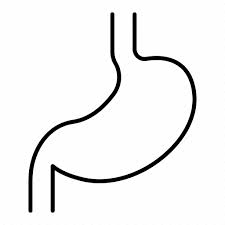
Reference: artichoke
Banner



Explore the golden elixir of nature that holds numerous benefits for health and beauty. This extraordinary plant, also known as "fenugreek," has been cherished for ages in Ayurvedic medicine and culinary traditions. Now, you can experience its magical properties through our fresh and high-quality products. Our fenugreek is an invitation to embrace a life in harmony with nature. The nutritional power of these seeds lies in their richness of vitamins and minerals, including Vitamins A, C, E, as well as iron, potassium, and magnesium. It provides excellent support for boosting the immune system and maintaining hormonal balance. Its precious impact on beauty will surprise and inspire you to make it a part of your daily care routine. The nourishing fenugreek oil adds shine and vitality to your hair while stimulating its growth. Regular application of the oil on the skin helps maintain its youthful appearance, moisturizing it and reducing fine lines. Our store guarantees authenticity and the highest quality. Discover how the unique properties of fenugreek can transform your life.
 Security policy
Security policy
(edit with the Customer Reassurance module)
 Delivery policy
Delivery policy
(edit with the Customer Reassurance module)
 Return policy
Return policy
(edit with the Customer Reassurance module)
 Most of the names for fenugreek used today are:
Most of the names for fenugreek used today are:
 1. What are the health properties of fenugreek ?
1. What are the health properties of fenugreek ?
Fenugreek is a plant from the legume family, originating from the regions of the Middle East and India. It has been used in traditional folk medicine for thousands of years due to its health properties. Fenugreek has various applications in treating different diseases and conditions, both in traditional and modern medicine. Primarily, fenugreek is known for its positive impact on digestion and metabolism. It contains dietary fiber, which helps regulate intestinal peristalsis and prevents constipation. Additionally, fenugreek contains numerous nutrients such as vitamins A, C, E, K, folate, iron, magnesium, zinc, and potassium, which support overall health. Fenugreek also possesses anti-inflammatory and antibacterial properties, particularly beneficial for skin health and the respiratory system. Compounds present in fenugreek can help reduce skin inflammation and alleviate acne symptoms. They may also aid in treating respiratory conditions like sinusitis, cough, and asthma. Another application of fenugreek is its effect on blood sugar levels. Compounds in fenugreek can help increase insulin sensitivity and lower blood sugar levels in individuals with type 2 diabetes. Fenugreek may also contribute to maintaining heart health by containing phytosterols that can help reduce LDL cholesterol levels (known as "bad" cholesterol) and protect the heart from cardiovascular diseases. Overall, fenugreek has many beneficial health properties and can be used to treat various ailments.
 2. How can fenugreek impact blood sugar levels ?
2. How can fenugreek impact blood sugar levels ?
Fenugreek is a plant from the legume family that has been used in natural medicine for centuries. One of its main applications is helping regulate blood sugar levels, especially in individuals with diabetes. Research indicates that fenugreek contains several substances that can assist in controlling blood sugar levels. These compounds include galactomannan, a polysaccharide composed of glucose and galactose, and trigonelline, an alcohol derivative of vitamin PP (niacin). Galactomannan, present in fenugreek, delays glucose absorption from food, leading to a slow and gradual rise in blood sugar levels. Consequently, blood glucose levels can be maintained at a stable level. Trigonelline, on the other hand, enhances tissue sensitivity to insulin, allowing better glucose utilization by the body. Additionally, this substance may have a protective effect on pancreatic beta cells responsible for insulin production. Fenugreek can be used in various ways to regulate blood sugar levels. It can be added to meals as a spice or taken in the form of capsules or tablets.
 3. Can fenugreek help with digestive system disorders such as indigestion or heartburn ?
3. Can fenugreek help with digestive system disorders such as indigestion or heartburn ?
Fenugreek, also known as kozieradka, is a plant from the legume family that is commonly used in traditional medicine worldwide. There is evidence suggesting that fenugreek may help alleviate some digestive system disorders, such as indigestion and heartburn. Fenugreek contains many nutrients, including protein, fiber, iron, magnesium, manganese, and vitamins such as vitamin C and B-complex vitamins. It also contains phenolic compounds such as saponins, flavonoids, and polyphenols, which are attributed to its anti-inflammatory and antioxidant properties. Research suggests that fenugreek may help relieve indigestion and heartburn by stimulating the secretion of digestive juices, which accelerates the digestion process. Additionally, fenugreek may act as a natural anti-inflammatory agent, which can help ease inflammatory conditions in the stomach and intestines that often lead to indigestion and heartburn. There are also studies suggesting that fenugreek may help alleviate symptoms of gastroesophageal reflux disease (GERD), which frequently causes heartburn. Animal studies have shown that fenugreek can reduce stomach acid levels and decrease the severity of GERD symptoms.
 4. What are the ways to use fenugreek in the kitchen ?
4. What are the ways to use fenugreek in the kitchen ?
Fenugreek, also known as kozieradka, is a popular ingredient in Indian and Mediterranean cuisine. It can be used in various ways, either by adding it to dishes, salads, soups, curries, marinades, or by grinding it into a powder and using it as a spice. Here are a few ways to use fenugreek in the kitchen:
![]() 5. Can fenugreek help increase lactation in breastfeeding mothers ?
5. Can fenugreek help increase lactation in breastfeeding mothers ?
Fenugreek has been used for centuries as a supplement to support lactation in breastfeeding mothers. This is due to the presence of phytoestrogens in fenugreek, which may help increase the level of prolactin - the hormone responsible for milk production in a woman's body. Scientific research conducted in this area suggests that consuming fenugreek in the form of herbal tea or as a dietary supplement may help increase the quantity of milk in breastfeeding mothers. In one study published in the Journal of Alternative and Complementary Medicine, it was found that women who took fenugreek supplements increased the amount of produced milk by about 50% within the first six weeks of use. However, before using fenugreek to increase lactation, it is always essential to consult with a doctor or lactation consultant to ensure that it is safe and appropriate for a particular case. There are certain contraindications to using fenugreek, as well as the risk of interactions with other medications or supplements.
 6. What are the side effects of using fenugreek as dietary supplements ?
6. What are the side effects of using fenugreek as dietary supplements ?
Fenugreek is generally considered a safe dietary ingredient, and it is unlikely that its consumption would cause serious side effects. However, in some cases, using dietary supplements containing fenugreek may lead to undesirable reactions. The most commonly reported side effect of using fenugreek is difficulty in digestion, which can manifest as abdominal pain, bloating, indigestion, and diarrhea. People with gastrointestinal conditions such as peptic ulcers, acid reflux, or irritable bowel syndrome should exercise caution when using dietary supplements with fenugreek. Other potential side effects of using fenugreek include allergic reactions, such as skin rash, itching, or breathing difficulties, especially in individuals with allergies to plants in the Fabaceae family. Additionally, fenugreek may affect blood sugar levels and blood pressure, so individuals with diabetes and heart conditions should consult a doctor before starting dietary supplements with fenugreek. When using fenugreek in the form of essential oil, caution should be exercised, as some people may experience allergic reactions or skin irritation upon contact with the oil.
 7. What are the differences between fenugreek and other medicinal plants such as cilantro or caraway ?
7. What are the differences between fenugreek and other medicinal plants such as cilantro or caraway ?
Fenugreek, cilantro, and caraway are three popular medicinal plants used in cooking and natural medicine. Although they have many similarities, there are also some differences between them. Fenugreek, also known as "Greek hay," has a bitter taste and a distinctive aroma that resembles licorice. This plant is used as a spice in cooking, especially in Indian and Middle Eastern cuisine. Fenugreek contains many biologically active compounds such as saponins, flavonoids, polyphenols, alkaloids, and essential oils. Research has shown that fenugreek may help lower blood sugar levels, increase lactation in breastfeeding mothers, improve digestion, and reduce inflammation. Cilantro, also known as coriander, has a mild taste and a delicate aroma. This plant is used as a spice in cuisine worldwide and is also an ingredient in many traditional herbal remedies. Cilantro contains biologically active compounds such as flavonoids, terpenes, organic acids, and essential oils. Studies have shown that cilantro may help lower cholesterol levels, regulate blood sugar levels, improve digestion, and have antibacterial properties. Caraway, also known as Roman cumin, has a sharp taste and a distinctive aroma. This plant is used as a spice in cooking, especially in European and Asian cuisine, and is also an ingredient in many traditional herbal remedies. Caraway contains many biologically active compounds such as flavonoids, terpenes, organic acids, and essential oils. Research has shown that caraway may help improve digestion, reduce symptoms associated with menopause, and strengthen the immune system. In summary, fenugreek, cilantro, and caraway have many similarities but also some differences. Each of these medicinal plants contains a unique set of biologically active compounds that impact human health in different ways.
 8. How is fenugreek cultivated and processed ?
8. How is fenugreek cultivated and processed ?
Fenugreek (Trigonella foenum-graecum) is a plant from the legume family and is mainly cultivated in the Middle East, South Asia, and the Mediterranean region. In Poland, fenugreek is grown in home gardens or on a small scale by farmers. Fenugreek cultivation requires fertile, well-draining, and moderately moist soil. The plant prefers a moderate climate with plenty of sunlight and temperatures above 15 degrees Celsius. Fenugreek can be grown both in the ground and in containers, with a vegetation period of 4 to 5 months. After harvesting, fenugreek is dried and then processed in various ways. The most popular fenugreek products include dried seeds, essential oil, ground seeds, plant extracts, and capsules with fenugreek extract. Fenugreek seeds are used in many dishes, especially in Indian and Middle Eastern cuisine, where they are added to curries, meat dishes, and soups. Fenugreek essential oil is used in the cosmetics and pharmaceutical industries. Plant extracts and capsules with fenugreek extract are popular dietary supplements with various health applications, especially in cases of diabetes, digestive problems, and menstrual discomfort. Fenugreek is a plant that is easy to cultivate and process. Its seeds and other products are widely used in cooking, cosmetics, and medicine. Thanks to its health properties, fenugreek is a popular ingredient in many dietary supplements and pharmaceutical products.
 9. Can fenugreek be used in cosmetics ?
9. Can fenugreek be used in cosmetics ?
Fenugreek, due to its nourishing and health-promoting properties, finds applications not only in the kitchen and natural medicine but also in cosmetics. This plant contains valuable components such as vitamins A, B, C, E, as well as calcium, magnesium, phosphorus, and iron, which have a beneficial impact on the skin and hair. Fenugreek can be used in cosmetics in the form of oil, milk, paste, or extract. Fenugreek oil is particularly popular due to its moisturizing and nourishing properties for the skin. It can be used for massage or as an additive to skincare and hair care products such as creams, balms, shampoos, or conditioners. Fenugreek also has anti-inflammatory and antibacterial properties, making it an ideal ingredient for acne-fighting and anti-inflammatory cosmetics. Extract from fenugreek seeds can help combat acne, reduce wrinkles, and improve skin elasticity. Fenugreek milk is an excellent natural makeup remover and skin cleanser. It can be used as a toner or micellar water to remove impurities and pollutants from the skin. Fenugreek paste can help fight dandruff and accelerate hair growth. It can be used as a hair mask or added to shampoo. Fenugreek is also used in soap production, especially in natural soap, due to its nourishing and soothing properties for the skin. It is often added to handmade soap to provide valuable nutrients to the skin. In conclusion, fenugreek has many applications in cosmetics and can help improve the appearance of the skin and hair. However, before using products with fenugreek, it is advisable to consult a dermatologist to ensure there are no contraindications or allergies.
![]() 10. What are the latest scientific studies on fenugreek ?
10. What are the latest scientific studies on fenugreek ?
Fenugreek, a plant from the legume family, has been used in folk medicine for thousands of years. It grows all over the world, and its seeds have many applications in natural medicine, cosmetics, and cuisine. Recently, scientists have conducted several studies on the medicinal properties of fenugreek. In a study conducted in 2021, it was found that fenugreek may have a beneficial impact on heart health. Researchers observed that supplementation with fenugreek seeds led to a reduction in triglyceride levels and LDL cholesterol in overweight and obese individuals. Another study published in 2020 showed that fenugreek can aid in the treatment of diabetes. Researchers noticed that supplementation with fenugreek seeds in individuals with type 2 diabetes contributed to a decrease in blood glucose levels and increased insulin sensitivity. Scientists have also been interested in the impact of fenugreek on inflammatory processes in the body. Animal studies have shown that fenugreek seed extract may reduce inflammation and pain. It is also worth mentioning studies related to the antioxidant properties of fenugreek. Fenugreek seeds contain many compounds that have strong antioxidant effects. As a result, they may help protect the body against oxidative stress, which is associated with many diseases, including neurodegenerative disorders and cancer. In summary, scientific research conducted in recent years confirms many beneficial properties of fenugreek. This plant may contribute to improving heart health, reducing blood glucose levels in individuals with diabetes, as well as alleviating inflammation and oxidative stress.
 SCIENTIFIC RESEARCH has been conducted by:
SCIENTIFIC RESEARCH has been conducted by:
Scientific research on fenugreek has been conducted by many scientists around the world. For example, studies on the antioxidant properties of fenugreek involved Dr. Hanaa Elsawy from the Egyptian National University, while research on fenugreek's impact on blood glucose levels was conducted by scientists from the Department of Biochemistry and Biotechnology at Aligarh Muslim University in India. Studies on fenugreek's effects on inflammation involved a team of scientists from King Saud University in Saudi Arabia, and research on fenugreek's influence on the circulatory system was conducted at the University of Vienna, among others. However, it's important to note that scientific research on fenugreek is carried out by various research teams worldwide, and the results of their studies are published in numerous reputable scientific journals.
 STORAGE
STORAGE
Fenugreek, due to its properties, is one of the more popular ingredients in Eastern and Central cuisines. Its seeds are added to many dishes, especially curries, and it is also used in natural medicine and cosmetics. To preserve its freshness and medicinal properties, proper storage is important. The first step in maintaining the freshness of fenugreek is choosing the right container. It is best for the container to be airtight and made of materials that won't introduce unwanted odors and flavors to the seeds. The container should also be protected from light, as UV rays can affect the quality of fenugreek. Next, the container with fenugreek seeds should be stored in a dry place, preferably at a temperature between 15 and 20 degrees Celsius. When exposed to moisture, fenugreek can quickly lose its quality and even develop mold. Fenugreek is prone to absorbing odors, so it should not be stored together with products that may introduce undesirable aromas. It is also advisable to avoid storing fenugreek near places with intense odors, such as cosmetics or chemicals. In the case of purchasing a larger quantity of fenugreek that won't fit in a single container, it can be stored in sealed plastic bags. This way, the seeds will maintain their quality for an extended period. Storing fenugreek is straightforward but requires some attention and care. It's important to choose suitable containers, protect the seeds from moisture and unwanted odors, and store them in a dry and cool place to preserve their freshness and medicinal properties.
 SCIENTIFIC SOURCES
SCIENTIFIC SOURCES
Here are some scientific articles related to fenugreek:

Thank you for your interest in our website dedicated to herbs! We are glad that you appreciate our work and effort in creating valuable content. If you would like to share our information on your website, we encourage you to do so. However, please respect our copyrights and refrain from copying content without our permission.
If you wish to share our website, you can always provide a link that leads to our page. Not only will this help maintain the integrity of our work, but it will also allow your readers to discover more valuable information about herbs.
Thank you for your understanding and support! If you have any questions or need additional information, feel free to contact us.
Reference: artichoke
Reference: chamomile
Reference: Acai berries
Reference: saw palmetto
Reference: Mugwort (Artemisia vulgaris)
Reference: rosemary
Reference: salvia
Reference: Ashwagandha
Your review appreciation cannot be sent
Report comment
Report sent
Your report cannot be sent
Write your review
Review sent
Your review cannot be sent

Explore the golden elixir of nature that holds numerous benefits for health and beauty. This extraordinary plant, also known as "fenugreek," has been cherished for ages in Ayurvedic medicine and culinary traditions. Now, you can experience its magical properties through our fresh and high-quality products. Our fenugreek is an invitation to embrace a life in harmony with nature. The nutritional power of these seeds lies in their richness of vitamins and minerals, including Vitamins A, C, E, as well as iron, potassium, and magnesium. It provides excellent support for boosting the immune system and maintaining hormonal balance. Its precious impact on beauty will surprise and inspire you to make it a part of your daily care routine. The nourishing fenugreek oil adds shine and vitality to your hair while stimulating its growth. Regular application of the oil on the skin helps maintain its youthful appearance, moisturizing it and reducing fine lines. Our store guarantees authenticity and the highest quality. Discover how the unique properties of fenugreek can transform your life.